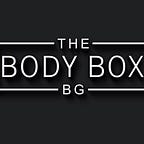What is the Ideal Breakfast?
As the old saying goes, breakfast is the most important meal of the day. Starting the day off right is important for many reasons:
· A proper high protein breakfast helps set the neurotransmitters for the day, improving energy levels, focus, and concentration. Energising neurotransmitters like dopamine and acetylcholine are essential for proper cortisol utilisation allowing your body to signal fat mobilisation for energy.
· A proper breakfast provides nutrition for energy, but does not increase insulin enough to blunt fat burning. When you wake up, your body is primarily using fat for fuel. Using the proper carb portion is essential for maintaining this fat burning state.
· Quality protein within 30 minutes of waking is essential for avoiding falling into a catabolic state.
· Most men produce their testosterone around 9 a.m. Optimal testosterone production is dependent on getting enough quality fats, and utilisation is dependent on getting in essential amino acids.
Protein, Protein, Protein!
The most important part of an ideal breakfast is protein. Preferably a red meat source. Red meats have higher amounts of carnitine. Carnitine is the amino acid that helps transport fatty acids to the mitochondria of your cells to be burned. Carnitine is also a testosterone sensitising amino acid. So it helps you burn fat and get more out of your morning testosterone.
If you choose quality grass-fed red meats, they are also naturally higher in CLA and Omega-3s, which both help with insulin sensitivity and body composition.
For most people, a 30g dose of protein is ideal. An example of the macro breakdown would be 30g of protein and 30g of fat, and little to no carbs. If you train first thing in the morning you can substitute 30g of whey protein, or better yet, 25g of whey and 5g of BCAAs.
Your Breakfast can either be a carb type or fat type.
Most people will be better off with a higher protein, high fat breakfast.
The best fats to add in the morning are coconut oil, butter, and fish oil.
· Coconut oil is rich in MCTs (Medium Chain Triglycerides) which are an energising fat. The liver converts these fats directly to energy making them a great alternative to carbs for pre-workout energy or for starting your day.
· Butter is rich in healthy saturated fats, CLA, and butyrate. Butyrate is a short chain fatty acid that helps increase the insulin sensitivity of lean tissue while increasing fatty-acid release from fat cells.
· Omega-3s help to increase fat burning enzymes, improve insulin sensitivity, and decrease inflammation. Fish-oil capsules are a great choice.
If you are the rare carb-type person, here’s how to get the most out of your breakfast carbs:
Protein is essential. A low protein breakfast with carbs will only blunt fat loss and decrease energy. Carbs at breakfast are best if they are low glycemic, and high nutrient density.
· Start with organic berries. Berries are rich in antioxidants, minerals, and very low GI. High nutrient berries like blueberries can actually be insulin sensitising because they are so nutrient dense, despite their carbohydrate content.
· Use other low GI fruits like apples, or complex starches like oats.
· A small amount of healthy fats is still okay for most. Coconut oil would be my choice.
A typical meal may look like this: 30g protein, 30g carbs, 15g fat.
Some people need a small amount of carbs to optimally burn fat, but if you go overboard, it reverses the effect. People that need carbs for breakfast are generally very lean naturally, especially in the upper back.
The easiest way to know what breakfast is best for you, is to try each, and train 2 hours afterwards. One should leave you feeling better and more energetic than the other. If your body fat is high, just stick with the high fat, high protein breakfast for now. As you get leaner try adding in some nuts for other healthy fats and small amounts of carbs.
Alkalise
Another important thing to do in the morning is alkalise the body. Fresh lemon or lime squeezed into water is a great start. Lemon and lime also helps with fat digestion, making the high protein, high fat breakfast even more effective.
Vegetables
Using vegetables in the morning is another great way to help alkalise the body, as well as getting in some fiber. If you train first thing in the morning, try adding a scoop of powdered greens instead.
Hydrate
The day should start with at least 500 ml of water to get the bowels moving, and to replenish the water lost overnight.
Hope you guys enjoyed reading this. If so, let me know. Please share away.
